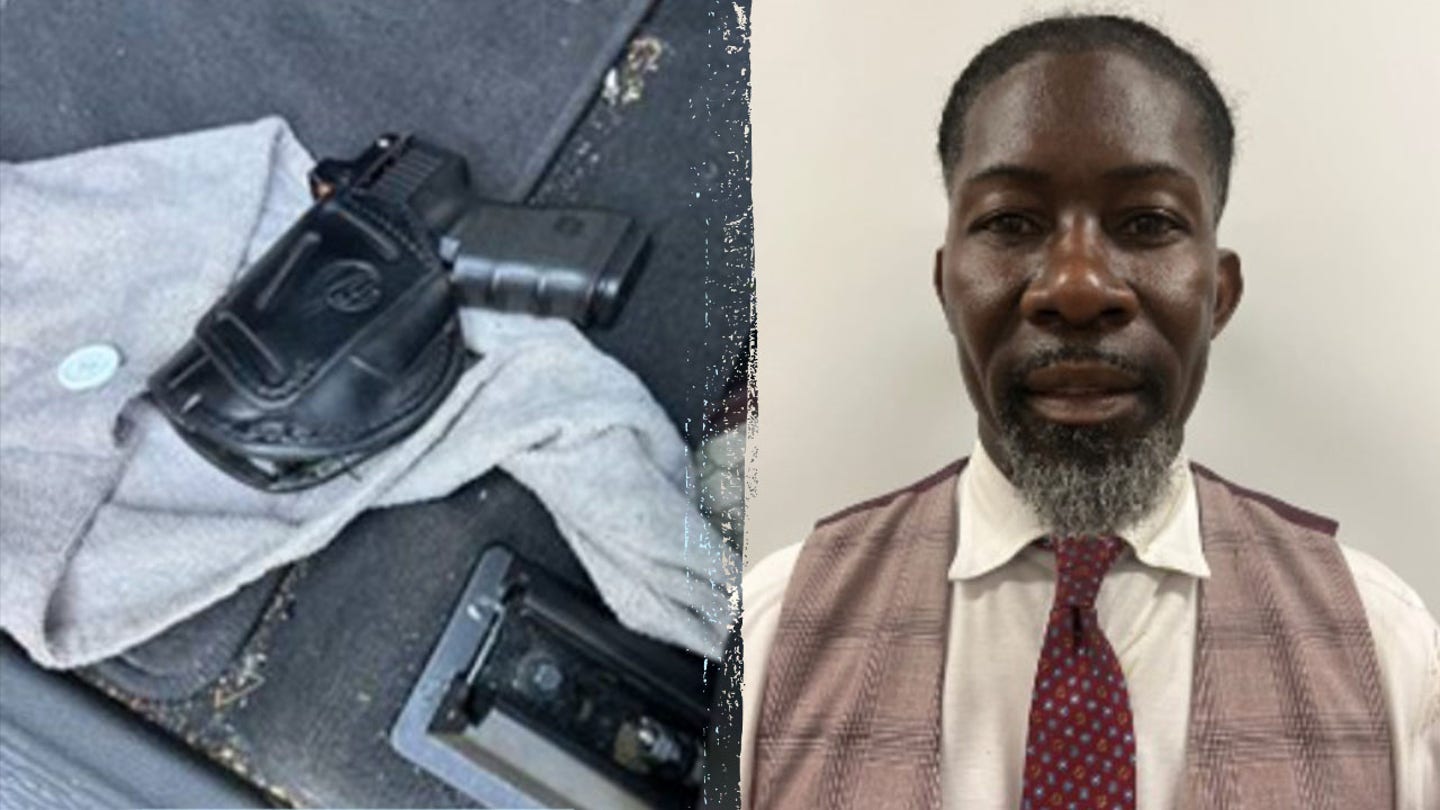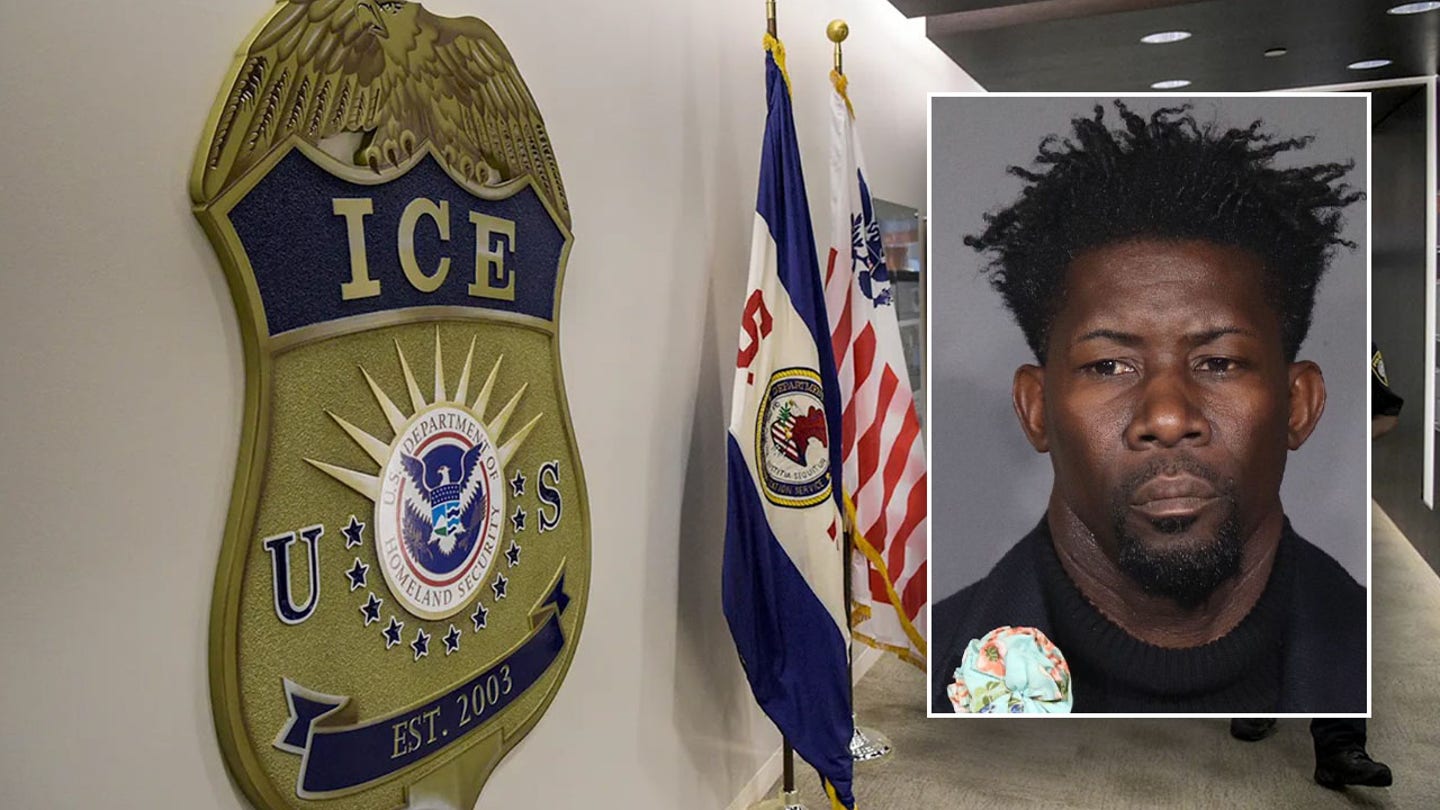School Chief to Suspect: ICE Arrest of Des Moines Superintendent Exposes Fake Degrees, Drug Convictions
In a stunning turn of events that has shaken Iowa’s largest school district and drawn national attention, the story of Ian Roberts — once celebrated as a reform-minded superintendent leading Des Moines Public Schools — has spiraled into a tangled web of deception, criminal history, and questions of how such a figure rose to power undetected. The arrest of Roberts by Immigration and Customs Enforcement (ICE) late last month has peeled back the layers of a life built on false credentials, hidden pasts, and a decades-long struggle to maintain an image that now lies in ruins.

According to federal authorities, Roberts, who presented himself as a dynamic and visionary educator, was taken into custody on September 26, 2025, for residing and working in the United States illegally despite having a final deportation order issued in 2024. When ICE agents approached him, Roberts reportedly attempted to flee, abandoning his vehicle before being caught carrying a loaded handgun, a knife, and roughly $3,000 in cash. The arrest, sudden and theatrical, left a community of teachers, students, and parents reeling — many of whom had come to see Roberts as a symbol of progress in the city’s often embattled education system.
Within days, Roberts’s professional life collapsed. The Iowa Board of Educational Examiners swiftly revoked his administrator’s license, citing “dishonesty, falsification of credentials, and conduct unbecoming of an educator.” On September 30, Roberts tendered his resignation, effectively ending his tenure at Des Moines Public Schools just months after it began. But the shock of his removal was only the beginning. What followed was a flood of revelations that painted a deeply troubling portrait of a man who had long been hiding in plain sight.

Documents obtained by multiple outlets, including Reuters, the Associated Press, and The Guardian, revealed that Roberts’s record was riddled with inconsistencies and false claims. On his official résumé, he had proudly listed a doctorate in educational leadership from Morgan State University, an MBA from the Massachusetts Institute of Technology’s Sloan School of Management, and another doctorate from Trident University International. Yet as journalists began to verify these credentials, the façade began to crumble. Morgan State confirmed that while Roberts had once been enrolled in its doctoral program, he never completed his dissertation — meaning he never earned the degree he claimed. MIT stated flatly that no record of his attendance or graduation existed, and Trident University’s documentation raised questions about the legitimacy of that claimed doctorate as well.
For the Des Moines school board, which had hired Roberts in 2024 after a months-long national search, the revelations triggered a storm of outrage and introspection. The district quickly filed a lawsuit against JG Consulting, the Texas-based firm responsible for vetting candidates, accusing it of negligence and breach of contract for failing to uncover these discrepancies. “The community trusted this process,” said one board member. “We were told every candidate had been thoroughly vetted. Clearly, that wasn’t the case.”
As investigators dug deeper, even darker chapters of Roberts’s life emerged. Records from New York and Pennsylvania revealed a string of criminal offenses dating back nearly three decades. In 1996, Roberts was charged with drug possession with intent to distribute, possession of forged documents, and criminal possession of a controlled substance in Queens, New York. Two years later, he faced accusations of unauthorized use of a vehicle — though that case was eventually dismissed. In subsequent years, he was cited for reckless driving, speeding, and multiple weapons-related violations, including the possession of a loaded firearm in a vehicle. Though many of these cases resulted in minor penalties or were eventually dismissed, together they painted a disturbing picture of a man who had repeatedly skirted the law.

ICE officials stated that Roberts had first entered the United States in 1999 on a student visa, which later expired. Over the years, he reportedly applied multiple times for work permits and other forms of legal status, but his last valid work authorization expired around 2020. Despite this, he continued to work in public education, moving between states and school systems under the guise of a respected academic. The federal government’s 2024 deportation order, issued after his immigration appeal was denied, went unheeded as Roberts maintained his high-profile role in Iowa.
The revelation that the superintendent of a major American school district was, in fact, living and working in the country illegally — while holding fake or exaggerated degrees — stunned both educators and lawmakers. Parents in Des Moines described feeling betrayed, while local educators expressed embarrassment that their leadership had been deceived so thoroughly. “We trusted him,” said one teacher at Roosevelt High School. “He spoke about diversity, leadership, and opportunity. We had no idea who he really was.”
Roberts’s arrest has also ignited a broader conversation about accountability in education hiring practices. How could a candidate with such glaring red flags — a questionable immigration status, fake credentials, and a documented criminal history — have passed through multiple layers of screening to assume one of the most powerful positions in Iowa’s public education system? Some blame the reliance on third-party vetting firms like JG Consulting, which often handle high-profile searches for school superintendents across the country. Others argue that the fault lies in systemic complacency — an assumption that someone who presents well and speaks convincingly must be legitimate.
Inside the district offices, morale has plummeted. The once-proud narrative of Des Moines Public Schools — that it had recruited a charismatic reformer ready to transform the system — has been replaced by suspicion and disillusionment. Parents have demanded public hearings, and local media have devoted daily coverage to what has become one of Iowa’s most sensational education scandals in decades. Even students have joined the outcry, organizing walkouts and demonstrations calling for transparency and reform.
Meanwhile, ICE officials have transported Roberts to a federal detention center pending deportation proceedings. In a statement, the agency said Roberts had “willfully misrepresented his educational and professional history” and “engaged in multiple violations of U.S. immigration and criminal law.” The Department of Homeland Security went further, releasing a summary of his criminal background that included at least six separate arrests between 1996 and 2022 — including one case involving possession of a firearm while under the influence.
In the weeks following his arrest, fragments of Roberts’s past have continued to surface, revealing a pattern of reinvention that stretches across decades. Born in Jamaica, Roberts came to the U.S. with aspirations of building an academic career. He held various positions at schools in Maryland and Pennsylvania before rising to prominence in Iowa. Former colleagues now describe him as intelligent but secretive — a man who seemed to reinvent his narrative at every opportunity. “He had this way of talking about himself like he’d overcome everything,” said one former administrator. “It was inspiring — until you realized none of it was real.”
The case has raised uncomfortable questions for federal and state agencies alike. Why did ICE, which had issued a deportation order in 2024, wait more than a year to act? Why did state education officials approve Roberts’s license without verifying his immigration or academic records? And why did JG Consulting’s vetting process — which the district paid hundreds of thousands of dollars for — fail so catastrophically? Each institution has deflected blame, with officials pointing fingers at one another as public trust continues to erode.
Local lawmakers have now called for an independent investigation into how the hiring occurred. Governor Kim Reynolds described the situation as “deeply disturbing” and demanded reforms to ensure no unverified candidate can hold high-level public education positions again. The Iowa Department of Education has announced new verification procedures requiring all superintendents to undergo direct degree authentication with universities and cross-checks with immigration databases.
Even as the legal and political fallout intensifies, the personal story of Ian Roberts remains both tragic and bewildering. How did a man with such an extensive criminal and immigration history climb to one of the most visible education roles in the Midwest? Was his deception calculated — a lifelong strategy — or the product of desperation and ambition colliding in dangerous ways? Some who knew him believe he truly wanted to make a difference but could never escape the lies that built his career. Others see him as a manipulator who exploited the blind spots of American bureaucracy.
In Des Moines, the effects are still being felt. The school board now faces the daunting task of rebuilding credibility with parents and staff. Interim leadership has been appointed, and an internal audit is underway to determine if any of Roberts’s policy changes or hiring decisions were improperly influenced. The district’s lawsuit against JG Consulting is expected to stretch on for months, possibly years. Meanwhile, the federal case against Roberts continues to develop, with ICE reportedly coordinating with Jamaican authorities to finalize deportation logistics.
For the teachers and students who once looked up to him, the scandal has left a bitter legacy. “It’s not just that he lied,” said one high school principal. “It’s that he used our trust as a stepping stone.” What was once a promising chapter for Des Moines education has become a cautionary tale about the fragility of trust and the consequences of unchecked ambition.
And yet, even amid the anger and disbelief, there is a lingering fascination — the way there always is when a public figure’s mask finally slips. Ian Roberts’s rise and fall is not just a story of one man’s deception; it’s a mirror held up to the institutions that enabled it, to a system so eager for vision and charisma that it forgot to verify the truth.
Now, as Roberts sits in federal custody awaiting deportation, the city he once led in applause and admiration has turned to introspection. The scandal has left Des Moines questioning not only how it happened, but whether it could happen again — and what other truths, still hidden in plain sight, are waiting to be exposed.

